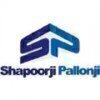Senior MEP Engineer
10+ Senior MEP Engineer Interview Questions and Answers

Asked in Tata Projects

Q. How does the secondary voltage pass from the primary winding in a transformer?
The secondary voltage passes from the primary winding in a transformer through electromagnetic induction.
When an alternating current flows through the primary winding, it creates a changing magnetic field around the winding.
This changing magnetic field induces a voltage in the secondary winding through electromagnetic induction.
The induced voltage in the secondary winding is proportional to the ratio of the number of turns in the primary and secondary windings.

Asked in Voltas

Q. What type of pipe is used in sewage systems?
PVC and HDPE pipes are commonly used in sewage systems.
PVC pipes are lightweight and easy to install.
HDPE pipes are durable and resistant to corrosion.
Both types of pipes are cost-effective and have a long lifespan.
Other materials used in sewage systems include concrete, cast iron, and ductile iron pipes.

Asked in Voltas

Q. How do you calculate ducting sheet requirements?
Ducting sheet calculation involves determining the size and shape of the ductwork required for a specific HVAC system.
Calculate the required air flow rate for the system
Determine the static pressure of the system
Select the appropriate duct size and shape based on the air flow rate and static pressure
Calculate the length of ductwork required for the system
Determine the number of fittings required for the system
Calculate the total surface area of the ductwork required for the s...read more

Asked in Tata Projects

Q. What is the function of oil in a transformer?
Oil in transformers functions as an insulating and cooling medium to prevent overheating and breakdown of electrical components.
Insulates electrical components to prevent short circuits
Cools the transformer by dissipating heat generated during operation
Protects against moisture and contaminants
Improves dielectric strength of the transformer oil
Examples: mineral oil, silicone oil, and synthetic esters

Asked in Jakson Group

Q. How do you handle critical sites?
I can handle critical sites by ensuring proper planning, communication, and risk management.
Develop a comprehensive plan that includes risk assessment and mitigation strategies
Ensure clear communication with all stakeholders, including clients, contractors, and team members
Implement strict safety protocols and procedures
Regularly monitor and assess the site for potential hazards
Have contingency plans in place for emergencies
Examples: managing MEP systems in a hospital, data c...read more

Asked in Tata Projects

Q. What would be the frequency in India
The frequency in India typically refers to the frequency of electricity supply, which is 50 Hz.
The frequency of electricity supply in India is 50 Hz.
This frequency is standard for most of the country's power grid.
It is important for electrical equipment to be compatible with this frequency to function properly.
Senior MEP Engineer Jobs




Asked in Shapoorji Pallonji Group

Q. Explain the working of an OLTC and the safety instruments in a transformer.
An OLTC regulates transformer voltage, while safety instruments protect against faults and ensure safe operation.
On-Load Tap Changer (OLTC): Adjusts transformer voltage levels under load to maintain output voltage stability.
Mechanical Operation: OLTC uses mechanical switches to change taps on the transformer winding, allowing for voltage adjustments.
Safety Instruments: Include Buchholz relays, which detect gas accumulation due to faults, and temperature sensors to prevent ove...read more

Asked in Imark InfoTech

Q. How do you handle clients?
I handle clients by actively listening to their needs and concerns, providing clear communication, and delivering quality work.
Actively listen to client needs and concerns
Provide clear and timely communication
Deliver quality work that meets or exceeds client expectations
Maintain a positive and professional attitude
Address any issues or concerns promptly and effectively
Share interview questions and help millions of jobseekers 🌟


Asked in Afcons Infrastructure

Q. Types of concrete, construction equipments, etc.
Types of concrete include ready-mix, precast, shotcrete, etc. Construction equipments include excavators, cranes, bulldozers, etc.
Types of concrete: ready-mix, precast, shotcrete, high-performance, etc.
Construction equipments: excavators, cranes, bulldozers, concrete mixers, etc.

Asked in Voltas

Q. Description of inergen system
Inergen system is a fire suppression system that uses a mixture of gases to extinguish fires.
Uses a blend of nitrogen, argon, and carbon dioxide gases
Discharges the gas mixture into the protected area to reduce oxygen levels and extinguish the fire
Does not leave any residue or damage to the protected area
Commonly used in data centers, museums, and other areas with valuable assets
Requires regular maintenance and testing to ensure proper function

Asked in Voltas

Q. Cpvc and upvc differences...
CPVC and UPVC are both types of plastic pipes used for plumbing, but they differ in their composition and properties.
CPVC is made by chlorinating PVC resin, making it more heat-resistant and suitable for hot water applications.
UPVC is made from unplasticized PVC, making it more rigid and durable, but less heat-resistant.
CPVC is typically used for hot water supply lines, while UPVC is used for cold water supply lines and drainage systems.
CPVC can handle higher water pressures ...read more

Asked in PS Group

Q. Which type of STP
STP stands for Sewage Treatment Plant, which is used to treat wastewater before releasing it back into the environment.
There are different types of STPs such as activated sludge process, sequencing batch reactor, and membrane bioreactor.
The type of STP used depends on factors like the volume of wastewater to be treated, space availability, and treatment requirements.
For example, an activated sludge process is commonly used for municipal wastewater treatment, while a membrane ...read more
Asked in D E W Electrical Services

Q. What is power factor?
Power factor (PF) is a measure of how efficiently electrical power is being consumed by a device or system.
Power factor is the ratio of real power (kW) to apparent power (kVA) in an electrical system.
It ranges from 0 to 1, with 1 being ideal where all the power is being used efficiently.
Low power factor can result in increased energy costs and inefficient use of electrical power.
Power factor correction techniques like capacitors are used to improve power factor in systems.
Exa...read more

Asked in TCS

Q. Are you willing to relocate?

Asked in Larsen & Toubro Limited

Q. Various codes and standards
Various codes and standards are essential for ensuring compliance and quality in MEP engineering projects.
Familiarity with codes such as ASHRAE, NFPA, IPC, and NEC is crucial
Understanding of local building codes and regulations is necessary
Knowledge of industry standards like ASME, ANSI, and IEEE is beneficial
Adherence to codes ensures safety, efficiency, and quality in MEP designs


Q. Same as above
As a Senior MEP Engineer, I oversee mechanical, electrical, and plumbing systems in construction projects, ensuring efficiency and compliance.
Lead the design and implementation of MEP systems in large-scale projects, such as commercial buildings.
Conduct energy audits to optimize HVAC systems, reducing operational costs by up to 30%.
Collaborate with architects and contractors to integrate MEP systems seamlessly into building designs.
Ensure compliance with local building codes ...read more

Asked in Incheon Motors

Q. Describe your technical knowledge.
A Senior MEP Engineer oversees mechanical, electrical, and plumbing systems in construction projects, ensuring efficiency and compliance.
Understanding HVAC systems: Knowledge of heating, ventilation, and air conditioning design and installation.
Electrical systems design: Ability to design electrical layouts, including lighting, power distribution, and emergency systems.
Plumbing systems expertise: Familiarity with plumbing codes, drainage systems, and water supply design.
Susta...read more
Interview Questions of Similar Designations
Interview Experiences of Popular Companies









Reviews
Interviews
Salaries
Users


















